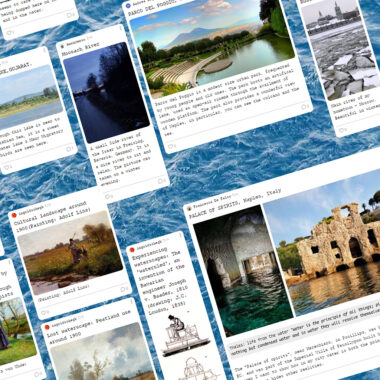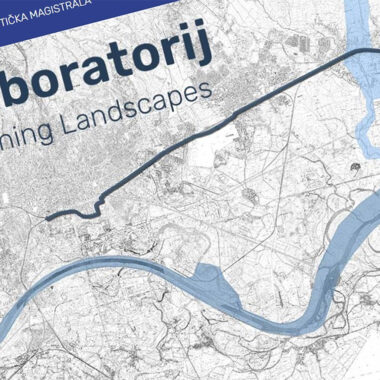The LE:NOTRE Landscape Forum is a discourse-oriented and interdisciplinary event of four days duration. The forum focuses on local landscape challenges identified by the host institution. In accordance with the Council of Europe Landscape Convention this includes outstanding as well as everyday or degraded landscapes in urban, peri-urban and rural environments. Previous fora were held in Antalya (2012), Rome (2013), Sarajevo (2014), Bucharest (2015), Paphos/Cyprus (2016), Freising/Munich (2017), Gozo/Malta (2018), and Zagreb (2019), Rimini (2022), and Nürtingen Stuttgart region (2023). The 2020 forum in Bratislava and the 2021 forum in forum in Gdansk were online events. The 2024 Forum will take place from June 28 until July 2 in Tartu, Estonia. An announcement of the programme will be presented on the forum website.
The LE:NOTRE Institute invites universities across Europe to express their interest in hosting the 12th LE:NOTRE Landscape Forum in spring 2025.
Please indicate your interest by sending an e-mail to the LE:NOTRE Institute Board before 15th of December 2023 . Contact: office[at]ln-institute.org
Your expression of interest should briefly cover the following aspects:
- What are the specific local landscape challenges you intend to address with the landscape forum?
- Why are these challenges relevant for an international target group?
- Which further target groups do you intend to involve in the forum? Please comment in particular on the cross-sectoral aspect (public and private sector, local authorities, NGOs)
- Which neighbouring disciplines are you planning to involve?
- What is the background of your department? Please comment in particular on the feasibility of establishing a local task force for the landscape forum.

Selection criteria for hosting a landscape forum
Your application should carefully address the following forum criteria:
1. Relevance
The process of hosting a landscape forum needs to be driven by a local landscape challenge. Landscape challenges are typically intertwined with ecological, societal, cultural, and economic dynamics and cannot be addressed by one sector alone. The forum is meant to be an instrument to raise awareness for such challenges. During the forum you bring together a cross-sectoral and interdisciplinary audience that will reflect on this challenge from multiple perspectives. The forum should help to generate innovative approaches for addressing the local challenge in a sustainable and inclusive way. A strong motivation for responding to a local landscape challenge is absolutely relevant. In your application, you need to provide evidence that you and your local partners are committed to this.
2. Innovation
So far, the landscape fora have addressed different landscape types with their specific challenges, namely: Mediterranean landscapes (Antalya 2012, Cyprus 2016, Malta 2018), the urban periphery of European metropolitan areas (Rome 2013, Munich 2017), post-war landscapes (Sarajevo 2014), urban green infrastructure (Bucharest 2015). Future fora might address a spectrum of landscape challenges that have not been covered so far, such as post-industrial landscapes, rural sprawl or rural depopulation, energy or mining landscapes, landscapes affected by climate change, landscapes driven by political conflict, or infrastructure landscapes.
3. Local Partnership
A landscape forum is typically hosted by a member university of the LE:NOTRE Institute (new members can always join). In order to assure the impact and relevance of the forum a broad local partnership is crucial. Local partners may include: civil society organisations such as environmental NGOs, faculty members from neighbouring disciplines, economic partners (businesses, offices, real estate companies), representatives from the public administration (local and regional), political representatives, professional associations, and media partner. A diverse, cross-sectoral and interdisciplinary partnership is ideal.
4. Local Task Force and Capacity
Your institution will host a group of international guests (approx. 150). Next to assuring adequate room and exhibition capacities, it is necessary to build a local team that will assure the following:
- Preparation of the forum working groups, processing and synthesizing local knowledge, preparing field trips and inviting local experts
- Assure adequate communication and organisation of the entire event
- Support the forum publication
- Support the LE:NOTRE Student Competition
- Seek for support and sponsoring from third parties
Benefits from the LE:NOTRE Landscape Forum
The target audience for the LE:NOTRE Landscape Forum includes academics, teachers and researchers from landscape-related disciplines, practitioners from both the public and private sectors, as well as members of NGOs and of course students.
Due to its interdisciplinary and cross-sectoral approach the forum generates the following benefits for the host institution and local co-organisers:
- Raising awareness for landscape issues at the political level (primarily local and regional)
- Creation of new synergies and task forces for addressing local landscape challenges
- Generating new perspectives on local landscape challenges for which traditional solutions are not sufficient anymore. Innovation is based on the cooperation of people from different, countries, sectors, and disciplines
- Promotion of the host university as a location for landscape-related discourse, possibilities for creating follow-ups in research, practice and teaching cooperations
- The preparation and implementation of a forum in close cooperation with the LE:NOTRE Institute Board is a stimulating process providing various development opportunities both for senior staff and young academics.
Principles behind the Forum
The structure and organisation of the Forum are seen as being a key part of its character and identity, and as such are an integral part of the event which are not to be significantly modified. They are essential to establishing the nature of the Forum as an event that contrasts with a typical academic conference. The three key considerations which lie behind the format of the Forum are that:
- Interdisciplinary dialogue and discussion between the participants are placed at the heart of the Forum, rather than the one-sided presentation of papers. The format of the Forum has been developed so as to maximise the opportunities for this;
- The local landscape and the engagement with it in the context of a series of (four) thematic groups, together a subsequent reflection on this by the part of the participants in the Forum form the core of the event;
- Participation in the Forum by teachers and researchers from a range of different ‘landscape-related’ disciplines as well as practitioners is also central to the interdisciplinary process of discourse and mutual learning which is at its heart.
These three factors are to be seen as inviolate in the development of every LE:NOTRE Landscape Forum.
In order to avoid collision with the ECLAS-Conference that generally takes place in September, the LLF is scheduled in the months of April or May.
Thematic Groups and Forum Activities
The themes for the four groups are intended to be broadly fixed for the foreseeable future and carried on from one forum to the next. This should make it possible to explore them in sufficient depth across a number of meetings and allow consistent comparisons between the themes to be made from place to place. Naturally, the particular slant given to the treatment of each theme will need to be adapted to the location of the Forum in question. As a result, it may be sensible to modify the name of each of the themes by making use of an appropriate sub-title. From the previous fora there are examples of the introduction texts: why is the case interesting, description of aspects and questions for the workshop, the aim of the workshop, working methods, planned results, information on the workshop coordinators and local experts, workshop outline, and detailed programme, and references.
While for a specific area or landscape challenge the themes may be adapted, examples of the themes are: Urban growth and Peri-urban Sprawl, Rural Change, Sustainable Tourism, and Heritage and Identity.
In addition, there are also cross-cutting themes that do not focus on one territory: Landscape Perception, Landscape Democracy, and Landscape Economy.
The forum further includes the following activities which are organised in close cooperation with the LE:NOTRE Institute Board: student competition, doctoral colloquium, practice and teaching workshops, poster exhibition, and outcome statement and forum publication
More information
LE:NOTRE Landscape Forum: http://forum.ln-institute.org
LE:NOTRE Institute: http://www.le-notre.org


